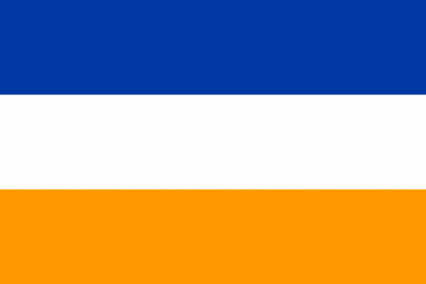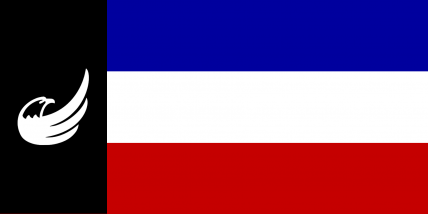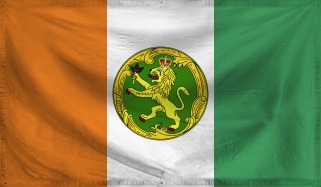
Advertisement

![]() by Vesteysia » Thu Jan 23, 2020 6:27 pm
by Vesteysia » Thu Jan 23, 2020 6:27 pm

![]() by Anentova » Thu Jan 23, 2020 7:13 pm
by Anentova » Thu Jan 23, 2020 7:13 pm
National News
More than 150 foreign companies have gone bankrupt before national companies, marking a political success of the National Doctrine.
3 Investigation Cases have been opened against officials and ministers for Corruption

![]() by Dormill and Stiura » Thu Jan 23, 2020 8:17 pm
by Dormill and Stiura » Thu Jan 23, 2020 8:17 pm

![]() by Samudera Darussalam » Fri Jan 24, 2020 2:12 am
by Samudera Darussalam » Fri Jan 24, 2020 2:12 am

![]() by Plaetopia » Fri Jan 24, 2020 2:40 am
by Plaetopia » Fri Jan 24, 2020 2:40 am
Plaetopia Post: Plaetopian economy slowly recovering | A new law passed by the Federal Assembly explicitly recognizes persecution because of sexual orientation as a valid reason for asylum in Plaetopia
![]() by Prozitia » Fri Jan 24, 2020 3:27 am
by Prozitia » Fri Jan 24, 2020 3:27 am

![]() by Imeriata » Fri Jan 24, 2020 3:24 pm
by Imeriata » Fri Jan 24, 2020 3:24 pm
Astralsideria wrote:You, sir, are the greatest who ever did set foot upon this earth. If there were an appropriate emoticon, I would take my hat off to you.
Altamirus wrote:^War! War! I want to see 18th century soldiers go up againist flaming cats! Do it Imeriata! Do it Now!

![]() by Montevento » Fri Jan 24, 2020 6:42 pm
by Montevento » Fri Jan 24, 2020 6:42 pm

![]() by Plaetopia » Sat Jan 25, 2020 2:04 am
by Plaetopia » Sat Jan 25, 2020 2:04 am
Imeriata wrote:Is there an independent judiciary, or is it subject to political pressure?
Plaetopia Post: Plaetopian economy slowly recovering | A new law passed by the Federal Assembly explicitly recognizes persecution because of sexual orientation as a valid reason for asylum in Plaetopia
![]() by Sodara » Sat Jan 25, 2020 2:34 am
by Sodara » Sat Jan 25, 2020 2:34 am

![]() by The Allied Tribe » Sun Jan 26, 2020 8:03 pm
by The Allied Tribe » Sun Jan 26, 2020 8:03 pm
The Allied Tribe wrote:ELECTIONS
How was the head of state (or other chief national authority) selected? What powers does the office exercise?
The head of state (our president) is selected by people. There are political parties (although they sometimes form alliances), each has a few debates, and then people who have been proved to be part of that party vote on who they want best to represent their party and be their president. Afterwards, each candidate from each political party debates, and a few months after, people from all political parties vote again. The person with the most popular votes gets elected. A president gets to serve a maximum of 2 terms, and each term is 4 years. The president has the ability to introduce laws, although it has to be approved by both more than half of the House of Chiefs and by more than half of the people.
How was the head of government selected? What powers does the office exercise?
The head of government is also our president.
How is the national legislature selected?
The House of Chiefs are elected by the people as well. Each Chief represents a tribe in The Allied Tribe, and right now, there are 100 Chiefs in the House of Chiefs.
Are elections considered free and fair? Are irregularities serious enough that they alter the results significantly?
Elections are considered free and fair, voting is private and there is heavy security. There are irregularities in our elections, but there are very few and they are small, so they rarely affect the results.
Does the opposition have a realistic chance of gaining support and power through elections?
They definitely do. The political party in the government right now, the Allied Tribe Party, has 51% support, while the main opposition, the National Party, has 47% support.
Is voting voluntary? If so, which was the average turnout in recent elections?
Voting is voluntary. In our last election of the 88% ofpeople that voted, 51% for the Allied Tribe Party, 47% for the National Party, and 2% for the other parties.
SEPARATION OF POWERS AND FUNCTIONING OF GOVERNMENT
In case national representatives were freely elected, are they able to succesfully develop and implement new policies? Does government authority extend over the full national territory?
They are able to implement new policies by approving them and also making laws, and government authority does extend over the full national territory, although Chiefs from the House of Chiefs can make local laws for their tribe if more than half of the tribe supports it.
Do foreign powers (democratic or not), or unelected entities (the military, religious or economic oligarchies...) exercise undue influence over the government?
Definitely not.
Does the legislature have the legislative initiative? What restrictions are placed on its ability to pass laws, including constitutional amendments?
Yes, both the president and the House of Chiefs have the legislative initiative, but if a Chief in the House of Chiefs tries to make a law, half of the House of Chiefs and half of the people must support it, and the same thing with the president making a law.
Is the executive able to subvert the legislature through legal or extralegal means (such as arbitrary dissolutions, lack of an adequate budget, or vetoes)?
The president can veto, but half of the people must support the veto.
From 0-10 (0 = clean, 10 = most corrupt), how pervasive is corruption (in government, business, etc.)? (Small explanation appreciated)
0, because doing corrupt things, like bribing, results in imprisonment for life without parole (even though the death penalty is outlawed, life sentences still exist)
From 0-10 (0 = completely opaque, 10 = completely transparent), how transparent is government activity? (Small explanation appreciated)
10, government activity is very well known, mostly because the government tells the people what they have done, although sometimes it is released by whistleblowers.
Is there an independent judiciary, or is it subject to political pressure?
There is an independent judiciary.
CIVIL LIBERTIES
Is there an independent media?
Yes.
Is there freedom of religion, including non-belief?
Yes.
Is education free of political interference or indoctrination?
Yes.
Are citizens able to express dissent in practice, without fearing retribution? How pervasive is surveillance?
Yes, and surveillance cameras are placed in shopping malls, police stations, and other places that need to be kept safe, but there are none in homes or other places unless they install them themselves.
Is there freedom of assembly? Are peaceful protests allowed, and are they able to proceed in practice?
Yes.
Are there basic guarantees of due process (in civil and criminal matters), and are they upheld in practice?
Yes.
Are independent trade unions and NGOs able to operate freely?
Yes.
Do individuals enjoy freedom of movement inside the country and of international travel, including in education, residence or employment?
Yes.
Do individuals enjoy basic social freedoms (do they have control over appearence? are they able to freely choose marriage partners and size of family? how common is domestic and sexual violence?)?
Yes, and domestic and sexual violence is rare, but obviously it still happens sometimes.
Are individuals able to freely set up their own business? Are property rights adequately protected?
Yes.
PARTICIPATION AND GUARANTEES OF EQUALITY
How is citizenship determined? Include a brief overview of the naturalization process, if available.
Citizenship is determined by people taking an oath to be a citizen of The Allied Tribe and to be a strict vegetarians.
Who is able to vote in elections, if they exist at all?
Anybody that is 18 or older can vote in any elections.
Are different segments of the population (men, women, the LGBT community, ethnic minorities...) treated equally in law and in practice?
Yes.
Are the above groups well represented in government?
Yes.
Do individuals have realistic opportunities for upward social mobility?
Yes.
OPTIONAL ADDITIONAL QUESTIONS
Are the government or nonstate groups deliberately and systematically changing the demographics of the country so as to dilute or eliminate a particular group?
No.
Any suggestions for future editions of the index?
2nd Allied Tribe War is over, The Allied Tribe repels an invasion by ATFF | The Allied Tribe officially bans Child Labor, Compulsory Organ Harvesting | The Allied Tribe states that force must be used strictly defensively, begins armed neutrality and cuts aggressive military ties with all nations
![]() by Alpes a Septentrionali Imperium » Sun Jan 26, 2020 10:11 pm
by Alpes a Septentrionali Imperium » Sun Jan 26, 2020 10:11 pm

![]() by Ishijan » Mon Jan 27, 2020 2:11 am
by Ishijan » Mon Jan 27, 2020 2:11 am

![]() by Plaetopia » Mon Jan 27, 2020 2:46 am
by Plaetopia » Mon Jan 27, 2020 2:46 am
Plaetopia Post: Plaetopian economy slowly recovering | A new law passed by the Federal Assembly explicitly recognizes persecution because of sexual orientation as a valid reason for asylum in Plaetopia
![]() by Aryax » Mon Jan 27, 2020 5:23 am
by Aryax » Mon Jan 27, 2020 5:23 am
Pogaria wrote:Wow, I've never seen a nation that was this restrictive. I can see why you're #1 for "Most Extreme".

![]() by Alpes a Septentrionali Imperium » Mon Jan 27, 2020 6:52 am
by Alpes a Septentrionali Imperium » Mon Jan 27, 2020 6:52 am

![]() by Plaetopia » Mon Jan 27, 2020 8:42 am
by Plaetopia » Mon Jan 27, 2020 8:42 am
Plaetopia Post: Plaetopian economy slowly recovering | A new law passed by the Federal Assembly explicitly recognizes persecution because of sexual orientation as a valid reason for asylum in Plaetopia
![]() by Tomure » Mon Jan 27, 2020 11:04 pm
by Tomure » Mon Jan 27, 2020 11:04 pm

![]() by New Transeurasia » Mon Jan 27, 2020 11:39 pm
by New Transeurasia » Mon Jan 27, 2020 11:39 pm
ENN 欧亜囯家通訊社 Eurasian National News: S7 Airlines flight 661 makes emergency landing in Miiriney, RU after failed hijacking | CTVN 长春広播电視集団 Chángchūn Television Network: President Kuzma makes speech on plans for her 2nd term after re-election

![]() by Cameroi » Tue Jan 28, 2020 3:11 am
by Cameroi » Tue Jan 28, 2020 3:11 am

![]() by Kaedijork » Tue Jan 28, 2020 4:08 am
by Kaedijork » Tue Jan 28, 2020 4:08 am

![]() by Plaetopia » Tue Jan 28, 2020 7:25 am
by Plaetopia » Tue Jan 28, 2020 7:25 am
Cameroi wrote:snip
Plaetopia Post: Plaetopian economy slowly recovering | A new law passed by the Federal Assembly explicitly recognizes persecution because of sexual orientation as a valid reason for asylum in Plaetopia
![]() by Teufelreich » Wed Jan 29, 2020 6:26 pm
by Teufelreich » Wed Jan 29, 2020 6:26 pm

![]() by Plaetopia » Thu Jan 30, 2020 3:03 am
by Plaetopia » Thu Jan 30, 2020 3:03 am
Plaetopia Post: Plaetopian economy slowly recovering | A new law passed by the Federal Assembly explicitly recognizes persecution because of sexual orientation as a valid reason for asylum in Plaetopia
![]() by Banija » Thu Jan 30, 2020 10:25 am
by Banija » Thu Jan 30, 2020 10:25 am
Advertisement
Return to Factbooks and National Information
Users browsing this forum: No registered users
Advertisement